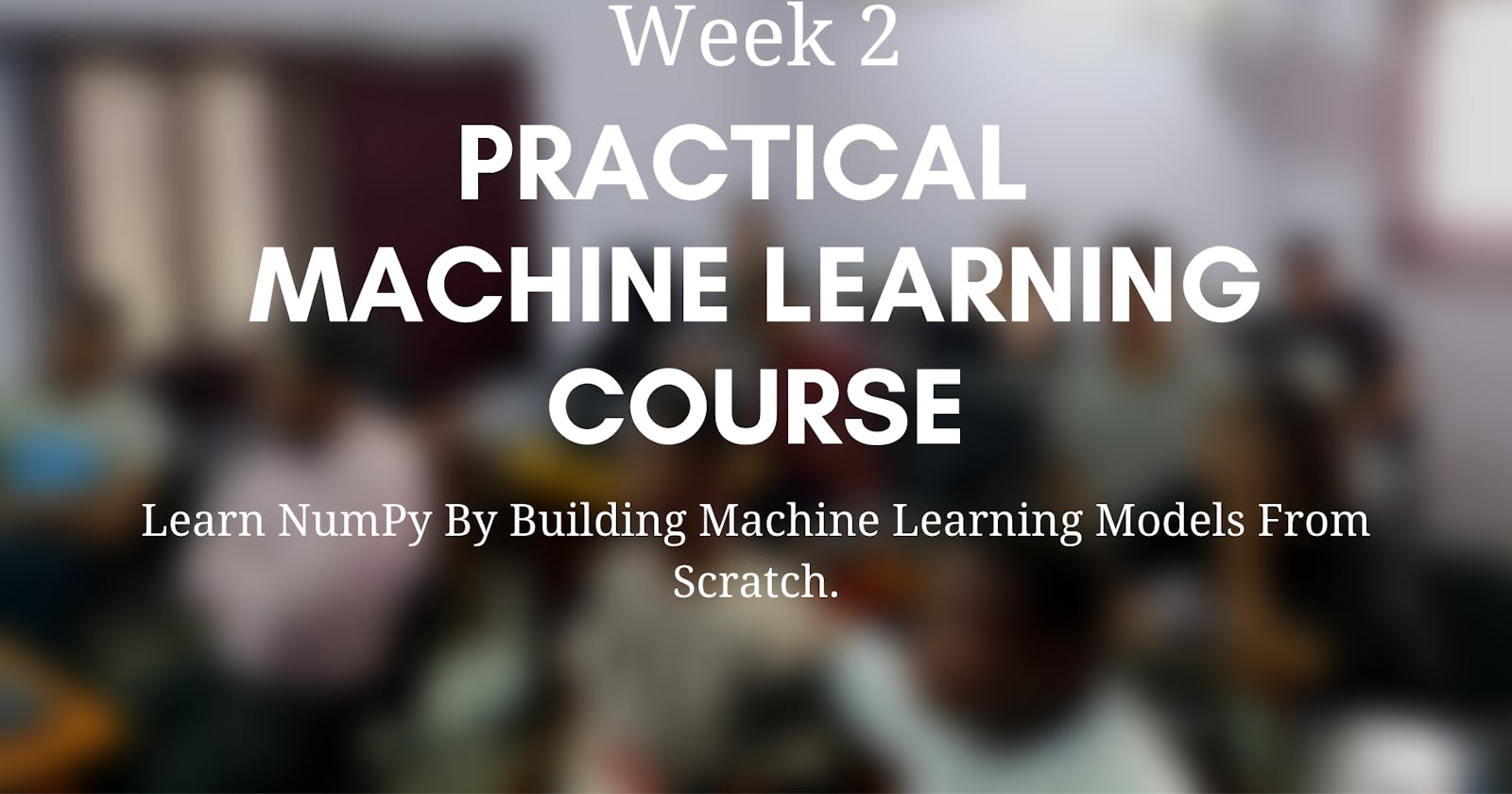Practical Machine Learning Course Week 2 Highlights; Learn NumPy By Building Machine Learning Models From Scratch.
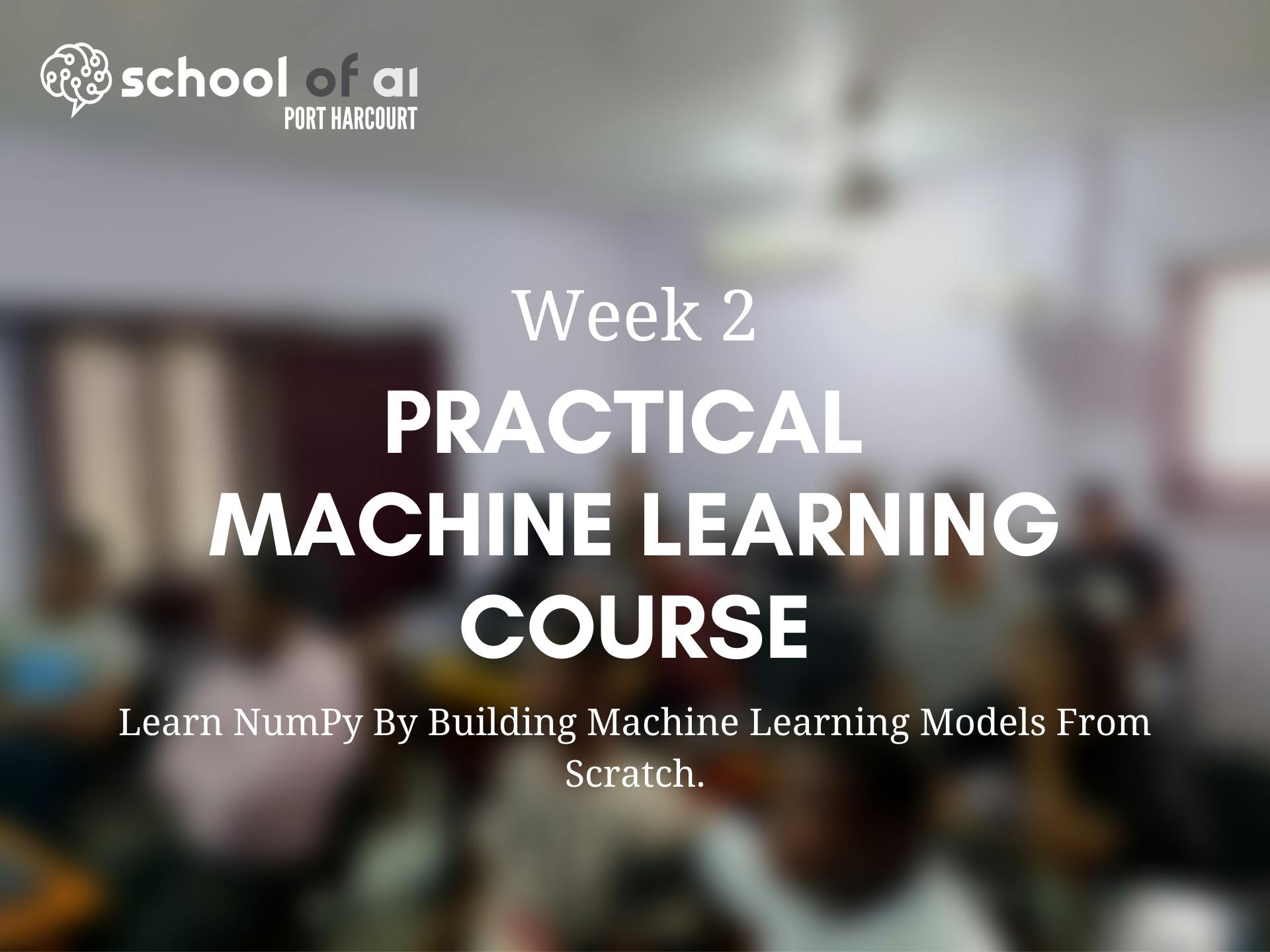
Hello, community!
On the 14th of March, the Port Harcourt School of AI had her second class for the Practical Machine Learning course. In our bid to democratize AI and data education and technology, making it accessible to anyone interested, we commit to releasing the highlights of each week’s classes to the general public on our blog and YouTube channel (if we happen to have any video content) so everyone can benefit in some way from the otherwise limited-participants class.
Class Details
Lesson Title: Data Vectorization and Visualization with NumPy and Matplotlib (Series 1),
Guest Facilitator: There was no guest speaker/facilitator for this week.
Class Instructors:
Stephen Oladele on “A Practical Workshop On Problem-Solving Business Challenges for ML Engineers.”
Boma S. George on "Learn NumPy by Building Linear Regression and Logistic Regression Models From Scratch."
Class Project for Assessment: Students will build a full-fledged model linear model from scratch that can account for the loss function, with the knowledge gained from the week's training.
Class Date: 14th of March, 2020
Class Time: 10 AM - 4 PM
Class Venue: Loctech IT Training Institute, 4a Etim Okpoyo Close, Rumuobiakani, Bridge bus stop, Aba Express Road, Port Harcourt. You can locate it via Google Maps by clicking here.
Class Agenda: You can access the class agenda here.
Class Highlights
For every week, we have one of our students to volunteer to write a report for the class, as a means of improving their class awareness and writing skills. You can read last class’ report from Stanley Tochukwu, and you can read it here.
The class started off following the agenda with Stephen Oladele giving an overview of the hosts (Port Harcourt School of AI community) of the program and other addresses, and what to expect from the class on that day.
Practical Workshop On Problem-Solving Business Challenges for Data Scientists and ML Engineers With Standard Workflows
Stephen Oladele kicked off the lessons for the class with a practical introduction to solving real-world business problems that require Machine Learning by using standard Machine Learning project workflows to solve the challenge presented in the problem pack for the class.
Together with the class, he shared his knowledge on the most crucial questions to ask and the most crucial steps to take when trying to solve business problems with your Machine Learning expertise. You can access the Machine Learning project checklist used as the standard here, made by one of the guest facilitators of the Practical Machine Learning course.
Main Point
Before attempting to solve problems as a Data Scientist or ML engineer, before jumping into that checklist of your workflow at all, your core job is to ask questions. Most of your clients can only fantasize how Artificial Intelligence can "magically" solve their business problems. So it is your job as an ML engineer to understand their business and effectively communicate to them where ML can give them the best return on investment (ROI) taking into account the circumstances.
You will find out in most cases, there is a better chance for a pilot project to give a good ROI in one or more parts of the business, that isn't the one initially proposed by the client.
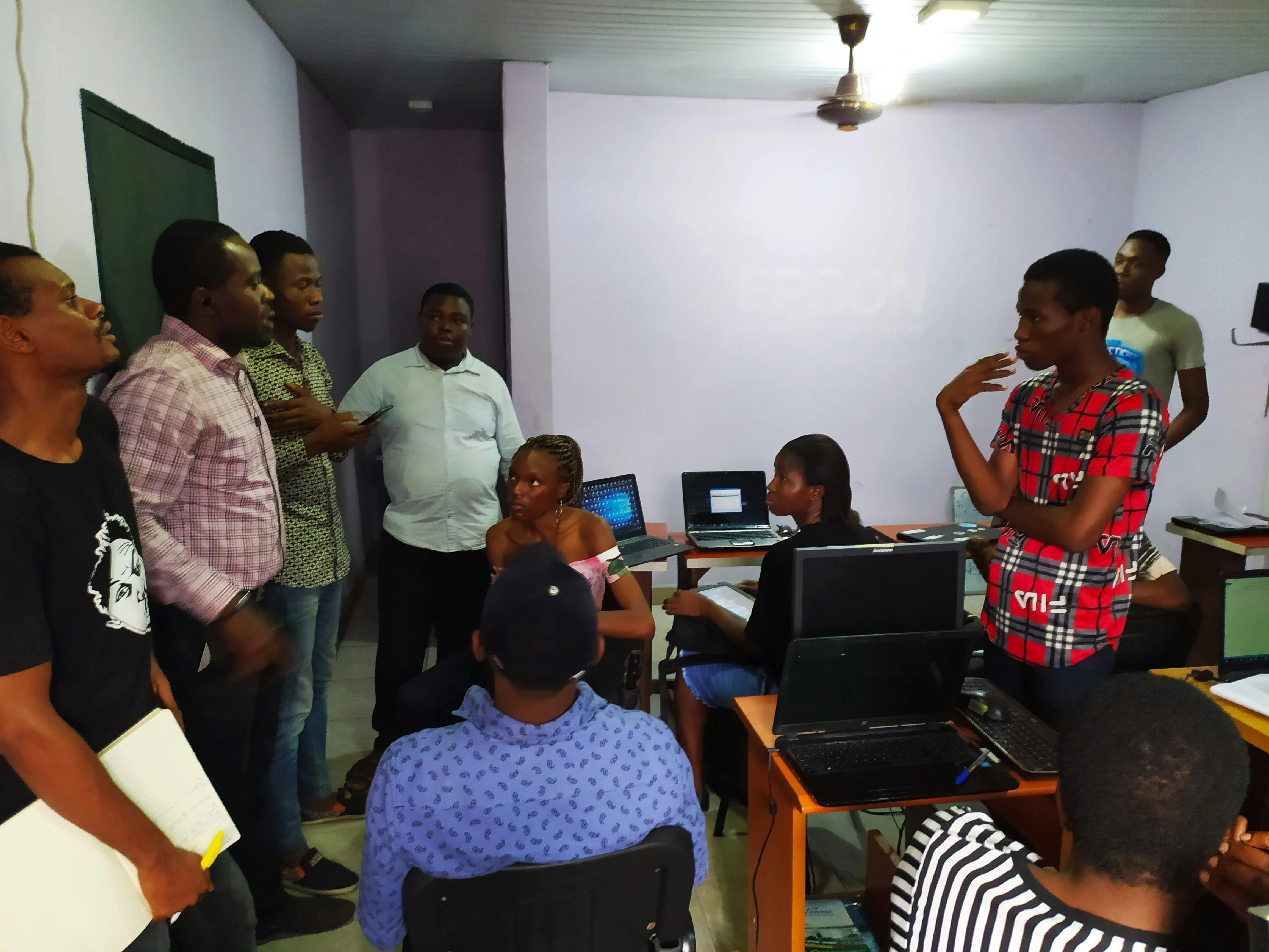 Both groups sharing ideas back and forth for a clearer understanding of the exercise problem.
Both groups sharing ideas back and forth for a clearer understanding of the exercise problem.
The class then moved on to the practical exercise for the day where they formed 2 different groups; 1 group posed as a real-world company with board members and a CEO, where they framed a business problem. The other groups acted as the technology company with ML consultants on-ground ready to solve business challenges. You can find an account of both groups and the outcome of the exercise in the class report here.
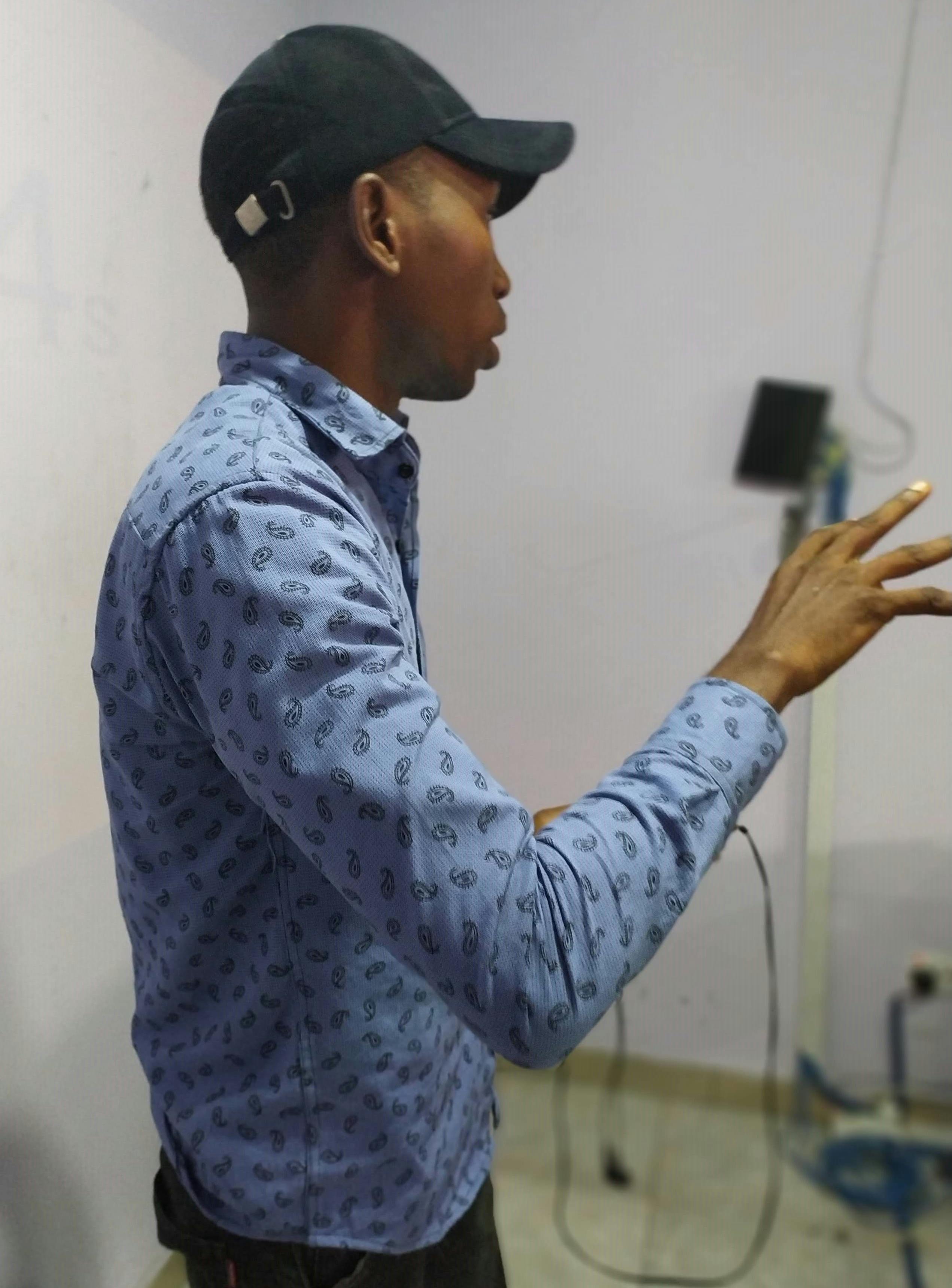 Stephen Obah, one of the members of the Machine Learning consultancy group explaining their proposed solution.
Stephen Obah, one of the members of the Machine Learning consultancy group explaining their proposed solution.
Learn NumPy by Building Linear Regression
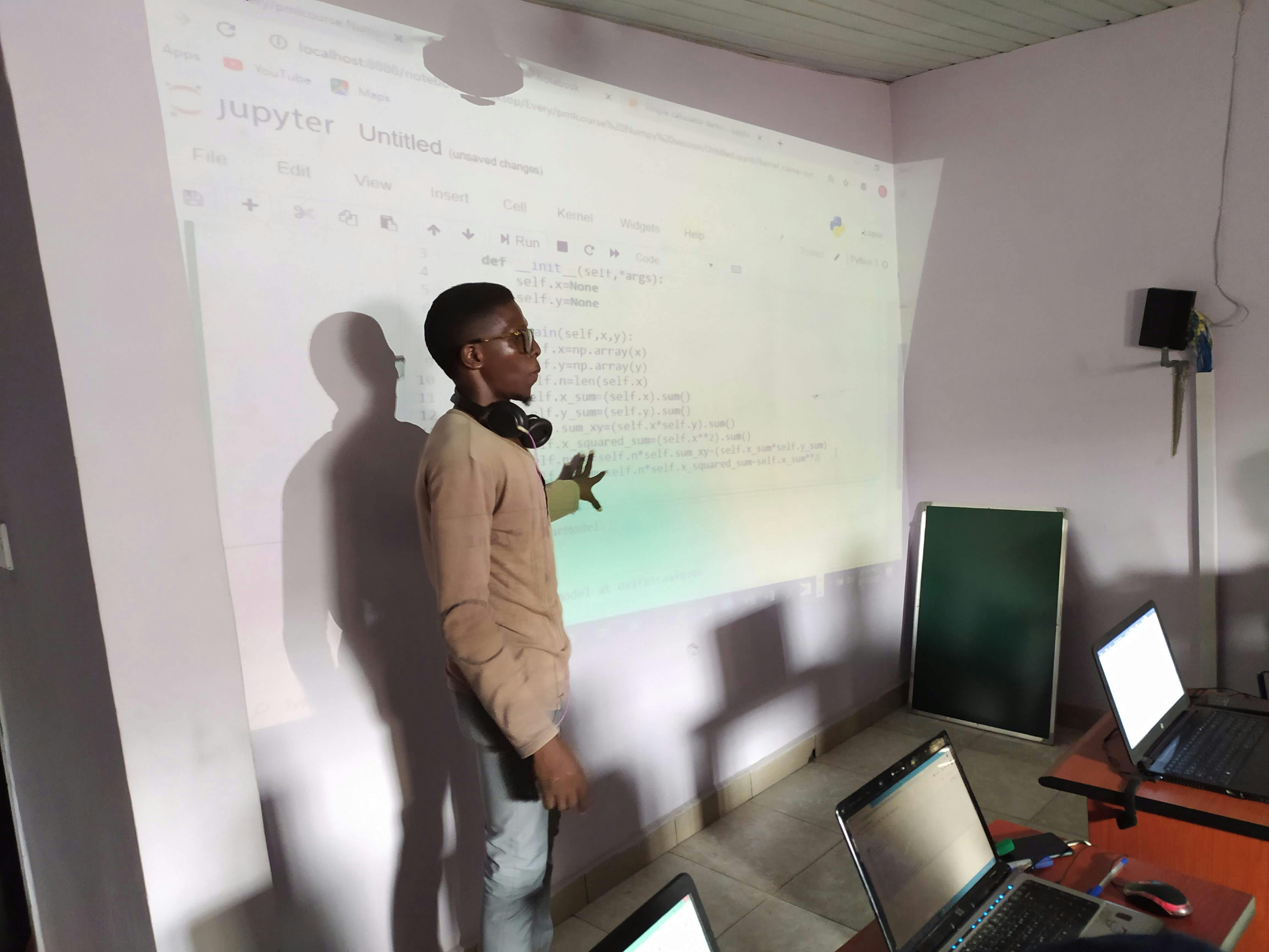 The instructor Boma S. George explaining a concept.
The instructor Boma S. George explaining a concept.
The class went on after a break, where Boma S. George took a practical session on engaging their knowledge of NumPy gotten from the preparatory class resources (blog posts and videos) to build a Linear Regression model from scratch, while learning linear algebra needed for building that particular model.
It was a very hands-on session with participants also coding along and trying to break their own code as well to see what works and what doesn't. They later went to learn Google Colab by uploading their notebook to service. They were later given an assessment to complete by their instructor to be submitted through their GitHub repository (which will require them to learn how to link their Google Colab notebooks to their GitHub repositories).
You can find the link to the instructor code repository here.
Learn NumPy by Building Logistic Regression
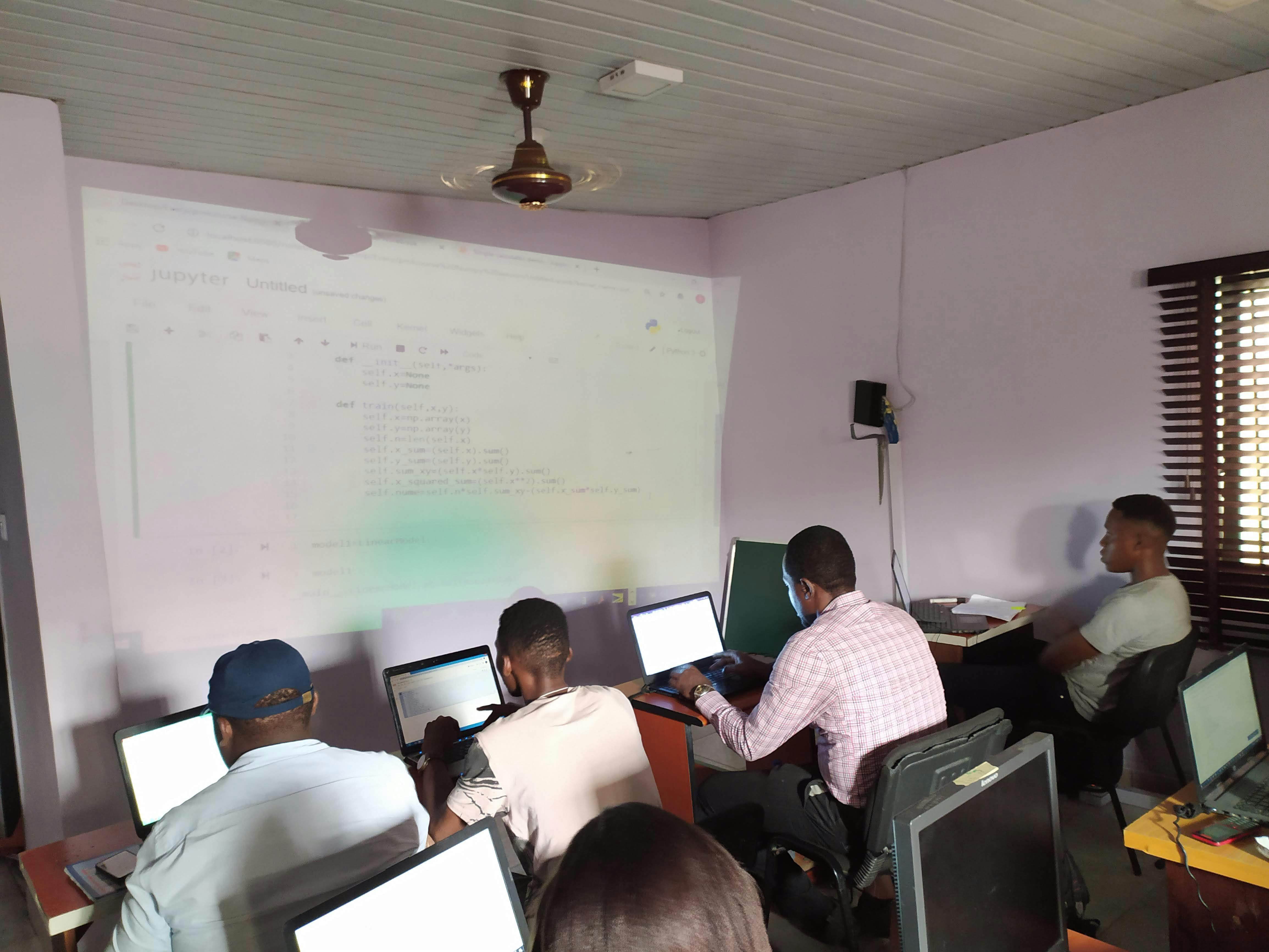 Students implementing their own piece of the model code.
Students implementing their own piece of the model code.
The participants went on to build another Machine Learning model from scratch (Logistic Regression) to put their NumPy knowledge into good use. They got to learn how to build a non-linear model and just like the section before this, they also got introduced to Machine Learning terms that they will go on to rediscover later in the course.
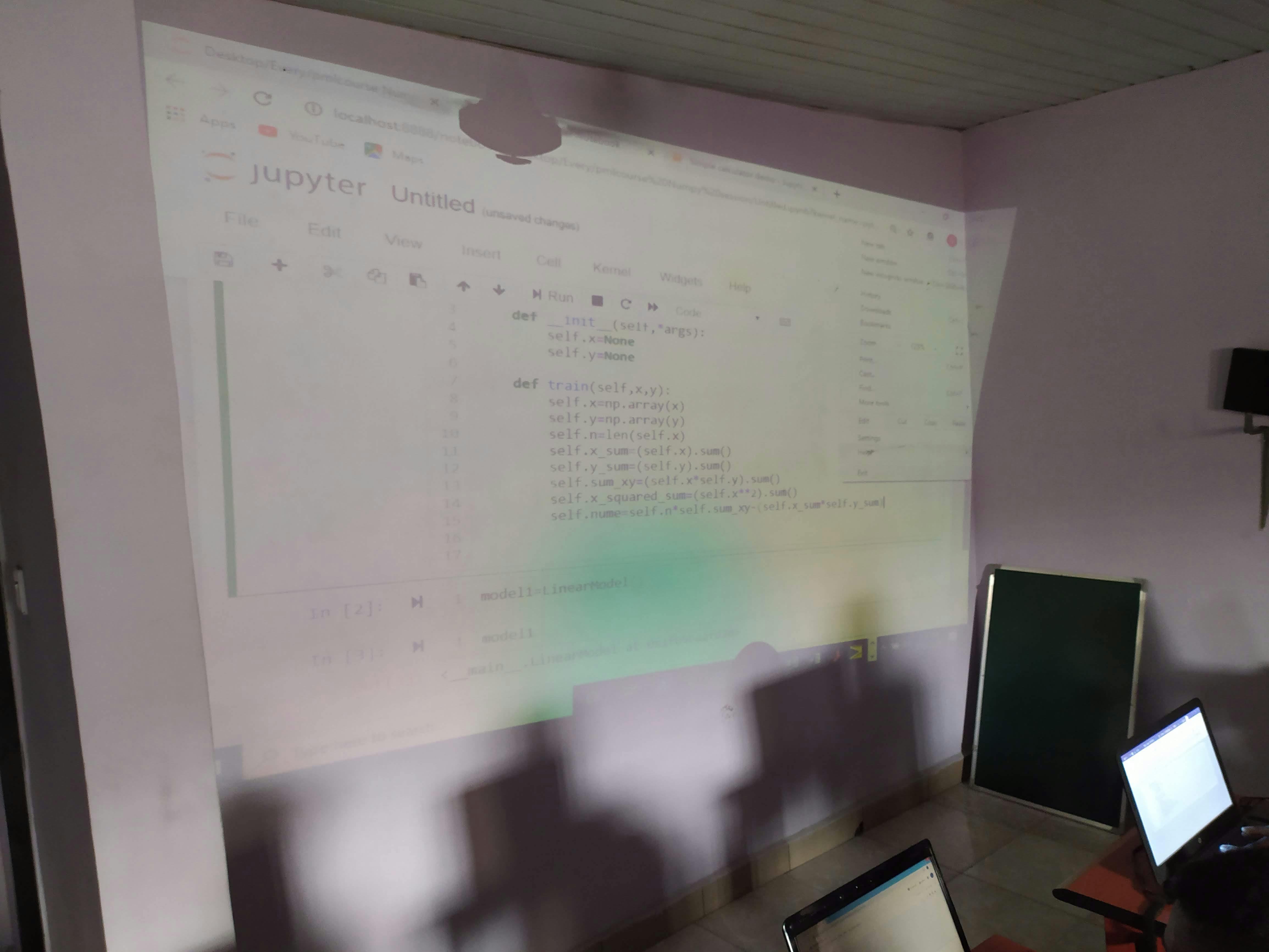 The code for the model is being implemented.
The code for the model is being implemented.
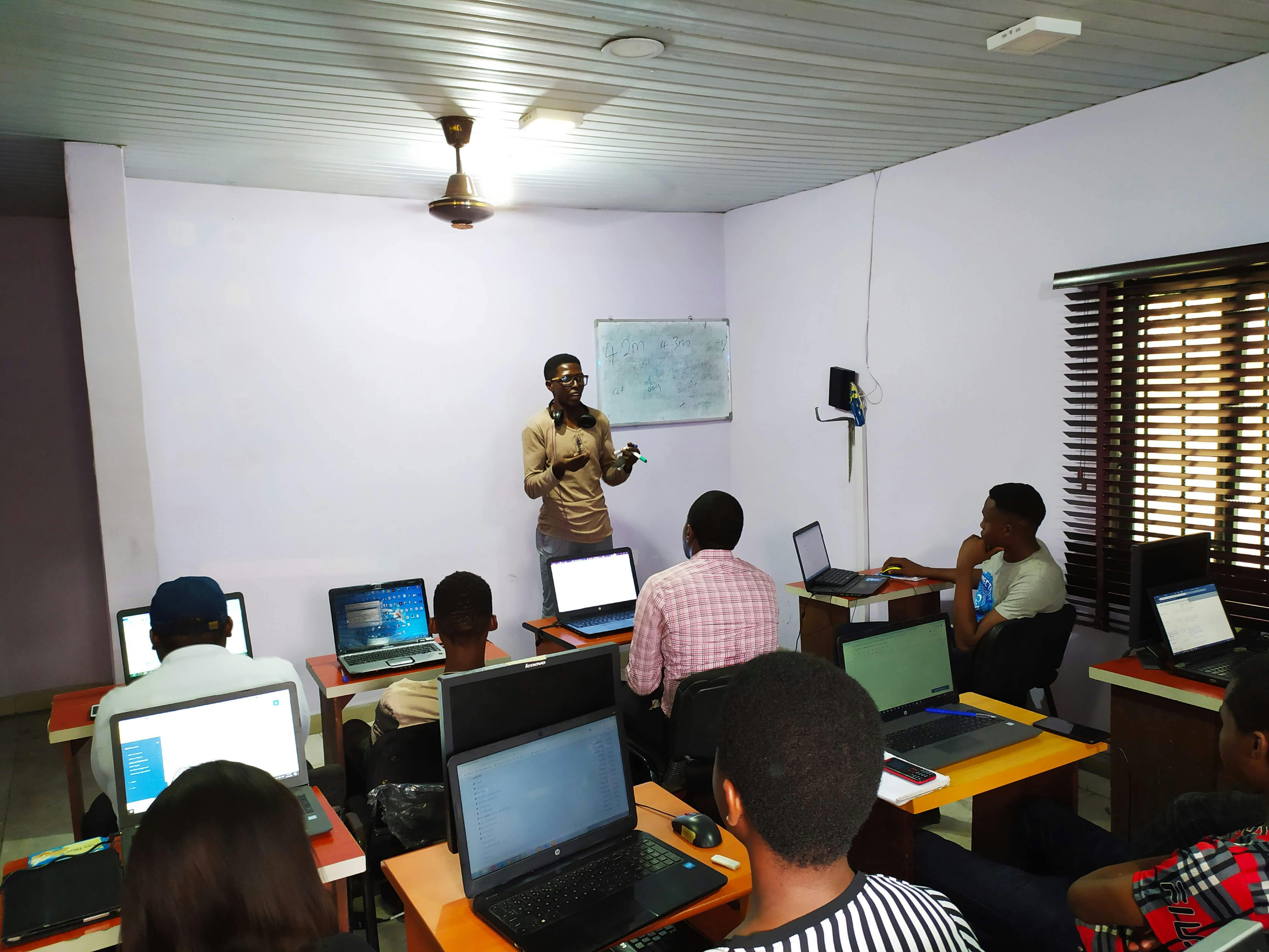 The instructor Boma S. Geroge is explaining the Maths behind the implementation of a logistic regression model with NumPy.
The instructor Boma S. Geroge is explaining the Maths behind the implementation of a logistic regression model with NumPy.
You can find the link to the instructor code repository here.
Classes continue next week…
Next week, we will be starting off the class by 10 AM prompt (West African Standard Time), same venue, by visiting the assessment completed by the students so as to provide the needed feedback for improvement. We are also going to be looking at the tools and books that we will be primarily using throughout the #pmlcourse. If time permits, we are also going to be learning some practical study tips for learners' individual progress.
After that, the instructor for the day will complete the practical sessions on NumPy to solidify understanding, and then kick off "Data Visualisation with the Matplotlib library". See you in class!
Class Sponsors and Enablers
Thanks to LocTech IT Training institute for supporting us with their facility as the venue for last week’s class. You can visit their website here, for your professional and accredited IT certifications.
Thanks to everyone who showed up for the classes. See you next week.
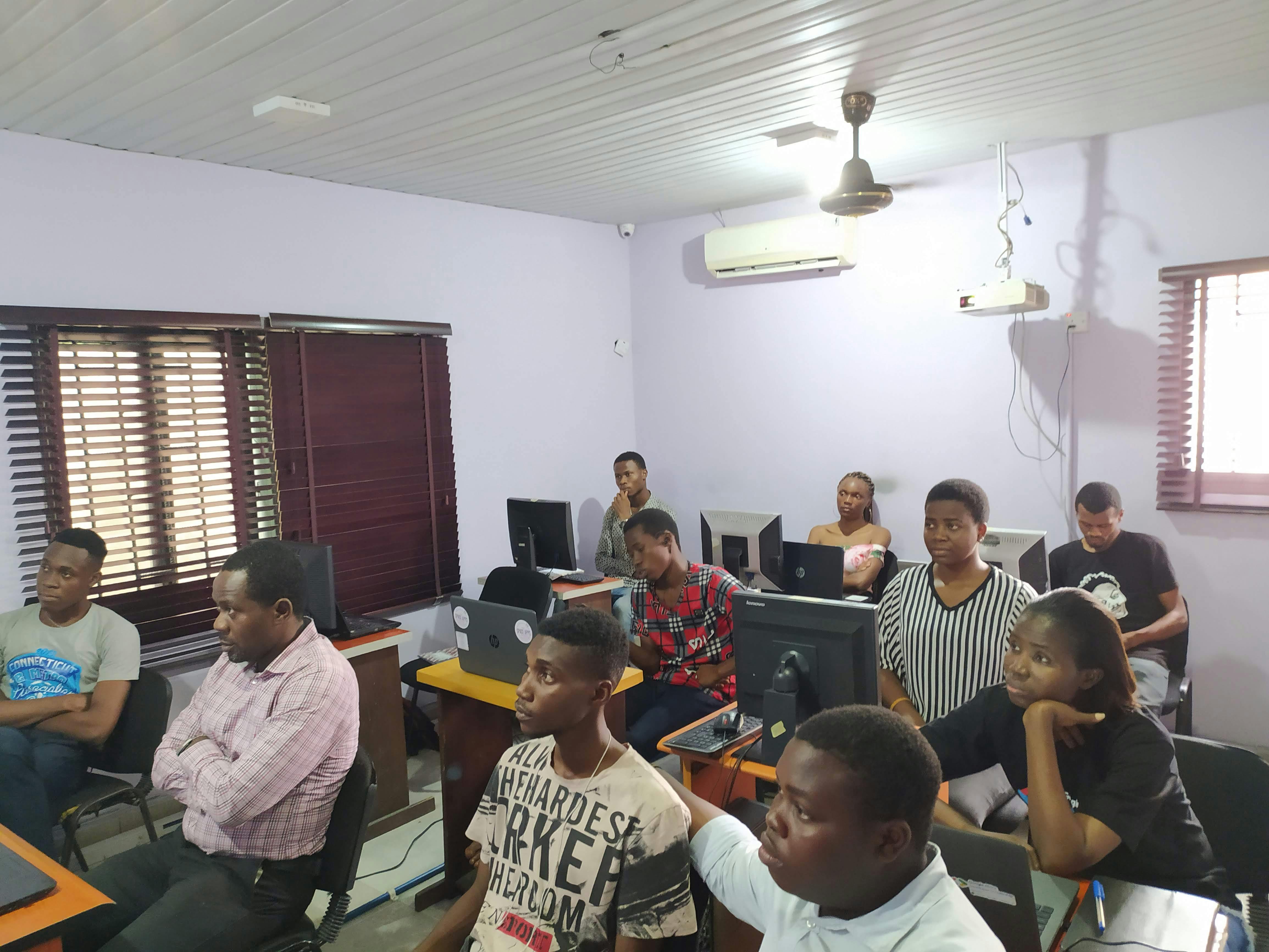 Learners learning new concepts...
Learners learning new concepts...
Other Community Initiatives Ongoing.
You can still register for the course by clicking here and learn more about the course here. Registration closes this Friday (20/03/2020) by 11:59 PM (WAT).
Calls for community instructors and mentors are still on.
The call for impact-driven instructors and mentors from the community is still on. You can apply if interested or can recommend someone who might be. Find out more by clicking here.
We are seeking sponsorships to keep on running our classes.
We need funds to keep on running our classes and exploring new grounds. If you are interested in sponsoring us, please mail us portharcortschoolofai@gmail.com or send us a DM on Twitter.
March Calendar and Timeline
You can now read our timeline for the month of March here and subscribe to our calendar by clicking here. If you do not use Google Calendar, you can click this link to access the calendar in your web browser.

